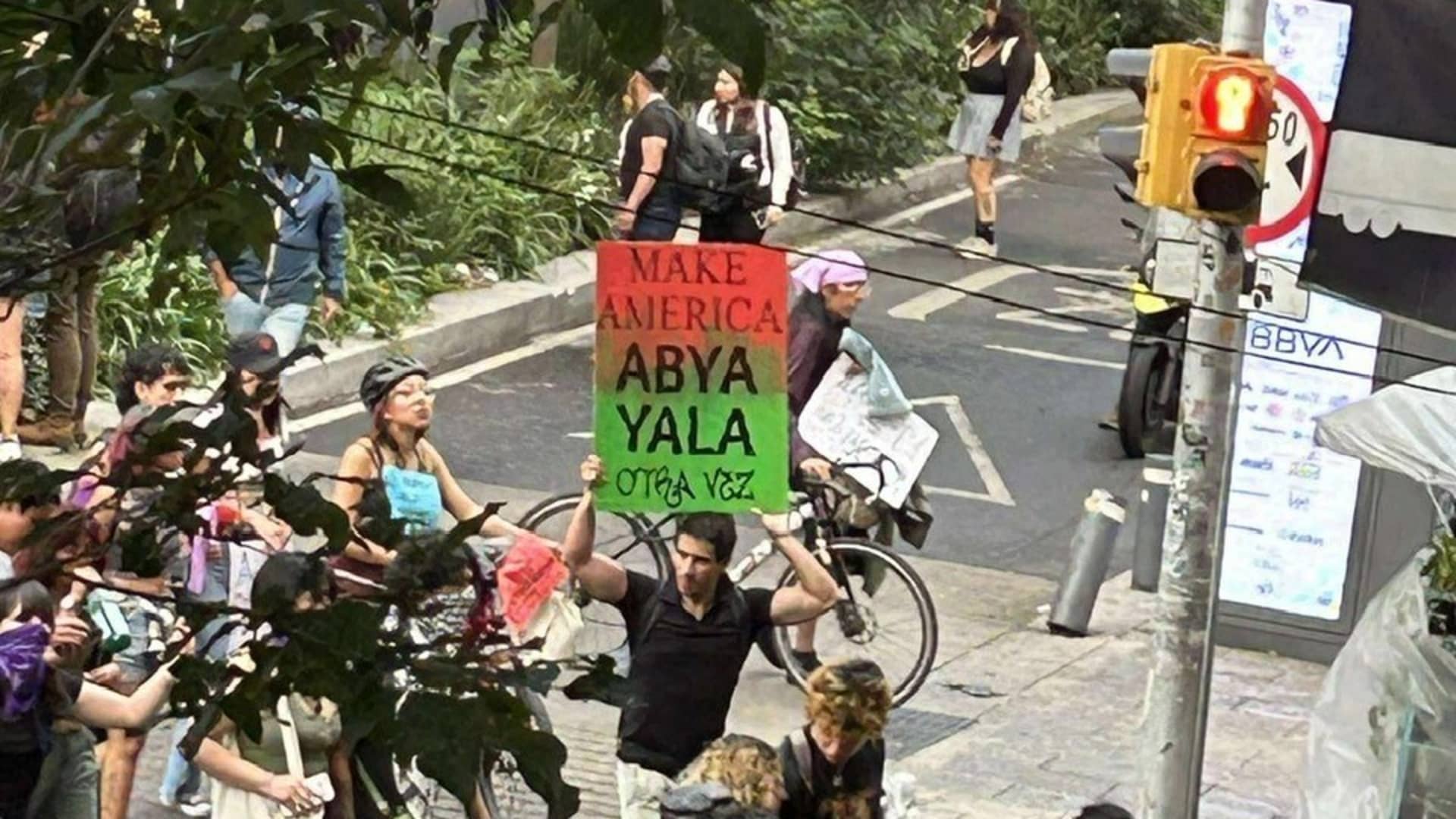‘Gringos leave’: Protests targeting travelers rise as overtourism anger grows

Nan Palmero was at a rehearsal dinner in Mexico City’s trendy Roma Norte neighborhood, ahead of a wedding of two American friends, when he heard a “rumbling” outside.
From the restaurant’s second story, Palmero described seeing a large group of people moving through the streets, some holding placards, shouting “Gringos leave.”
He later learned that demonstrators smashed restaurant windows and damaged vehicles, including the new car of his friends’ wedding planner — a local resident — he said.
“They wrecked her car, they smashed a window, they ripped off a mirror, they spray-painted the side of it. It was really pretty nasty,” he said.
Palmero, an avid traveler from San Antonio, Texas, said he had heard that an influx of digital nomads and foreign tourists had pushed up prices in some of the city’s most popular neighborhoods.
But he was not aware that residents were organizing demonstrations, like those that he had read about in Barcelona and other parts of Europe, he said.
“People … want to go and experience these beautiful and wonderful cultures around the world,” he said, adding that “we affect the thing that we’re trying to experience in a negative way.”
threw items, sprayed travelers with water guns and canned drinks, and used police-style tape to block hotel entrances and sidewalk cafes. The message from the crowd was clear: “Tourists go home.”
Barcelona, and the Spanish island of Mallorca saw water gun-toting protestors return in June, while there were demonstrations in other parts of Spain, Venice, Italy and Lisbon, Portugal, according to the Associated Press. Protestors in Barcelona set off firecrackers and opened a can of pink smoke, it said.
Travelers may be the visible factor to blame, but policy gaps are the root of the problem, said Tsukanova.
this effect is usually short-lived, she said. Following protests throughout Spain in 2024, tourist arrivals increased 4.1% in the first seven months of 2025, according to its National Statistics Institute.
A man argues with protesters outside a Barcelona hotel on July 6, 2024.
Paco Freire | Sopa Images | Lightrocket | Getty Images
Protests can, however, generate awareness about the problems residents face, which can cause travelers to change certain behaviors, such as choosing hotels over short-term rentals, she said.
But there is little evidence that protests have long-term effects, said Tsukanova.
Papp said cities that respond to pressure caused by protests often do so with ad-hoc policies that are more symbolic than they are meaningful.
“Such measures, in turn, reinforce societal concerns and fuel negative perceptions of tourism,” she said. “It is a cycle.”
regenerative travel” — a form of tourism that helps locals, rather than hinders, them — cities should include local communities in tourism development, he said.
Doug Lansky, a travel writer and frequent speaker about tourism development, agreed, saying that local voices are often missing from critical discussions, which hurts destinations in the long run.
“If these residents had a seat at the table — any table — where they felt that they voices were being heard locally, then they wouldn’t have to march in the streets,” he said.
Lansky is a proponent of “managed tourism,” citing limits such as timed entries to attractions, visitor caps, and the restriction, but not elimination of, short-term rental markets.
The trade-off, he said, is less serendipity than travelers had in the past.
“It’s not as fun … [but] you’re not going to be wasting your day standing in line,” he said. “It’s going to benefit all.”
Clarification: This article has been updated to clarify that societal pressure elevated tourism on policy agendas in Amsterdam.



